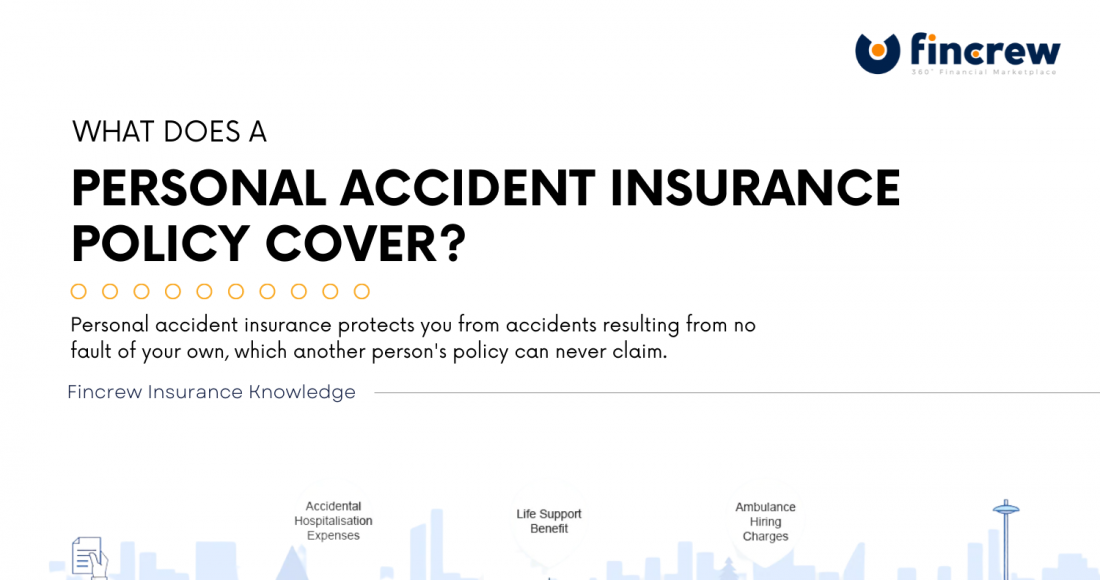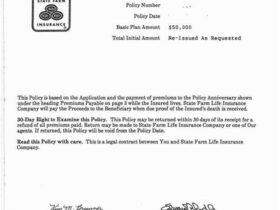Accidents happen. They’re an unfortunate part of life, and sometimes they can have a significant impact on your physical and financial well-being. Personal accident insurance is designed to provide a financial safety net in the event of an accident that results in serious injury, disability, or even death. This guide explores what personal accident insurance coverage entails, helping you understand its benefits, limitations, and whether it’s the right choice for your specific needs.
What is Personal Accident Insurance?
Personal accident insurance provides compensation to individuals who suffer injuries or death as a result of an accident. Unlike health insurance, which covers medical expenses related to illness and disease, personal accident insurance focuses specifically on accidents. It can help cover lost income, medical bills, and other expenses that arise due to an accidental injury. This type of insurance differs from traditional life insurance in that the payout is triggered by an accident, not by illness or old age. It essentially protects you and your family from the financial strain of being unable to work because of an accident. One often overlooked consequence of an accident is the stress of managing finances while recovering; personal accident insurance can alleviate this burden.
What Does Personal Accident Insurance Cover?

The specifics of what a personal accident insurance policy covers can vary between insurers, so it’s crucial to carefully review the policy wording. However, most policies generally offer coverage for:
- Accidental Death: Provides a lump-sum payment to your beneficiaries if you die as a result of an accident.
- Permanent Total Disablement: Covers situations where an accident leads to a permanent disability, such as paralysis or loss of limbs.
- Loss of Limbs: Pays out a benefit if you lose a limb (arm, leg, hand, or foot) in an accident.
- Loss of Sight or Hearing: Provides compensation for the permanent loss of sight in one or both eyes, or the permanent loss of hearing in one or both ears.
- Permanent Loss of Use: Covers situations where you lose the ability to use a limb, even if it is not physically lost.
- Injuries at Work: Accidents that occur during your employment.
- Road Traffic Accidents: Injuries sustained in car or other vehicle accidents.
- Injuries from Violence: Injury caused by acts of violence from another person.
- Slips, Trips, and Falls: Injuries resulting from falls, slips, and spills.
Many policies may also cover medical expenses, such as physiotherapy or rehabilitation, arising from the accident. Some policies can be customized to include coverage for specific risks based on your lifestyle and activities.
What Isn’t Covered?
While personal accident insurance offers broad protection, there are certain exclusions to be aware of. Common exclusions include:
- Accidents Under the Influence: Injuries sustained while under the influence of alcohol or drugs.
- Failure to Use Safety Equipment: Accidents that occur because you weren’t wearing a seatbelt or other necessary safety gear.
- Participation in Extreme Sports: Injuries sustained while participating in races, rallies, or other hazardous activities.
- Self-Inflicted Injuries: Injuries that are intentionally self-inflicted.
- Sickness or Disease: Injury or death caused by illness or disease, rather than an accident.
It’s important to read the policy document thoroughly to understand all the exclusions before purchasing coverage.
Who Needs Personal Accident Insurance?

Personal accident insurance can be valuable for a wide range of individuals, but it’s particularly important for those who:
- Work in High-Risk Occupations: Construction workers, industrial workers, delivery drivers, and others in physically demanding or dangerous jobs face a higher risk of accidents.
- Are Self-Employed: Self-employed individuals may not have access to employer-provided benefits and may need coverage to replace lost income if they’re unable to work due to an accident.
- Have Family Responsibilities: If you have dependents who rely on your income, personal accident insurance can provide financial support for them in the event of your accidental death or disability.
- Engage in Risky Activities: If you frequently participate in sports or hobbies with a higher risk of injury, such as mountain biking, skiing, or rock climbing, personal accident insurance can provide additional protection.
Even if you work in an office setting, personal accident insurance might be beneficial if you drive or cycle to work. Some employers may already offer personal accident coverage through group insurance plans, which can reduce the need for individual coverage.
Types of Personal Accident Insurance Cover

There are several types of personal accident insurance cover, including:
Standard Personal Accident Insurance: This covers accidental death, accidental permanent injury, and injury-related medical expenses.
Accidental Death Insurance: This policy ensures your family is financially supported if you die due to a serious accident, usually paying a lump sum.
Accidental Permanent Injury Insurance: This provides payment if you suffer a permanent injury like losing a limb, sight, or hearing, or if you become disabled.
Family Personal Accident Plans: These plans extend coverage to your entire family, which can be beneficial if you have adult children who may need this type of insurance.
Cost of Personal Accident Insurance
The cost of personal accident insurance varies depending on several factors, including:
- Age: Younger individuals generally pay lower premiums.
- Occupation: Those in higher-risk occupations will typically pay more.
- Coverage Amount: The higher the benefit amount, the higher the premium.
- Lifestyle: Risky hobbies or activities may increase premiums.
- Location: Premiums can vary depending on where you live.
Average premiums can range from around $20 to $50 per month for a plan providing coverage of between $50,000 and $200,000. It’s important to get quotes from multiple insurers to compare prices and coverage options.
Is Personal Accident Insurance Tax Deductible?
In the US, personal accident insurance premiums are generally not tax-deductible for individuals. This is because it’s not considered a business expense like professional indemnity or employer liability insurance.
Personal Accident Insurance vs. Health Insurance
It’s important to understand the difference between personal accident insurance and health insurance. Health insurance covers medical expenses related to illness and injury, including doctor visits, hospital stays, and prescription drugs. Personal accident insurance, on the other hand, specifically covers accidents that result in bodily injury, disability, or death. While health insurance provides a broader scope of coverage, personal accident insurance offers a lump-sum benefit that can be used to cover lost income or other expenses not covered by health insurance.
Ultimately, the choice between personal accident insurance and health insurance depends on your individual needs, risk factors, and budget. Consider your specific circumstances and consult with an insurance professional to determine the best combination of coverage for you.






Leave a Reply